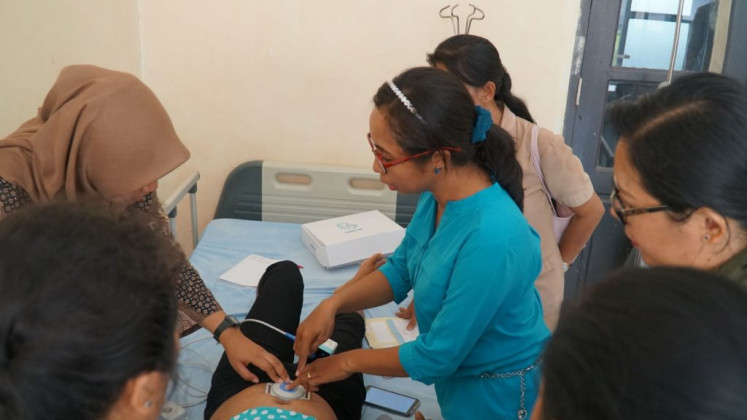Popular Reads
Top Results
Can't find what you're looking for?
View all search resultsPopular Reads
Top Results
Can't find what you're looking for?
View all search resultsFrom chalkboards to chatbots: Teachers' agency at the crossroads
Teachers need to have the intellectual freedom to decide what and how to teach beyond algorithmic nudges.
Change text size
Gift Premium Articles
to Anyone
W
orld Teachers' Day passed on Oct. 5 without much fanfare. Nevertheless, the day serves as a crucial moment to reflect on the profound paradigm shift currently underway in our education system.
Teachers have always been the indispensable backbone of learning, assisting us in thinking critically, questioning sharply, wondering deeply and imagining boldly. Yet, precisely when we should be celebrating their vital role, a new force - artificial intelligence - is dramatically reshaping not only how we learn, but also what it means to teach and even to think.
The AI shift is not gently requesting entry into our education systems; it is forcing the doors wide open. Changes that were projected to take decades are now unfolding in mere years, and in some cases, months. Institutions that have stood for centuries as the ultimate gatekeepers of knowledge, such as schools and universities, are watching that monopoly vanish in real time.
It is true that AI offers tangible opportunities, such as assisting teachers with administrative tasks, facilitating faster grading, preparing lesson plans and opening doors for remote learning. This is the exact sales pitch frequently delivered by industry players seeking to integrate their chatbots into educational settings.
However, what AI offers, while amazing, is also alarming. It risks replacing the hard intellectual struggle and deep questioning that are essential for training the mind to think critically.
In February 2025, the Agency for Standard, Curriculum and Assessment (BSKAP) of the Elementary and Secondary Education Ministry published an academic manuscript on learning about coding and AI. The policy guidelines highlight several strategic interventions for teachers, including the development of learning resources, intensive training, optimized use of learning management systems (LMS) for sustainable teacher training and competency certification. The required competencies span professional knowledge (computational thinking, digital literacy, AI, programming and data analysis), pedagogy and interpersonal and social skills.
While this ambitious plan acknowledges the existing challenge of uneven infrastructure and resources across the country, it overlooked critical issues essential for successful implementation: How to ensure teachers' roles remain relevant; how to protect teacher agency; how to prevent teachers from being reduced to mere AI or tech operators; and how to ensure AI adoption in the classroom is governed by robust ethical and responsible frameworks.



















